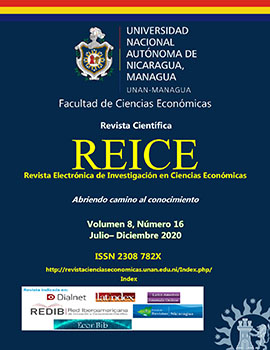Solvency of the Institute of City Management in Estimates of the Population of the South of Russia: History and Perspectives
DOI:
https://doi.org/10.5377/reice.v8i16.10703Keywords:
Institute of city management, public solvency, city Manager, head of municipal formation, local government.Abstract
This article interprets the results of a mass sociological survey conducted among the population of municipalities of the Rostov region and the Republic of Adygea, in order to determine the social viability of the Institute of city management. Social competence is defined as the achievement of the main goals set for the Institute of city management, primarily, the involvement of professional managers to improve the indicators of socio-economic development of territories. Four aspects are defined as criteria for evaluation: confidence in the reform, goals of the reform, satisfaction with the reform, and expectation of the consequences of the reform. The authors came to the conclusion that a significant mass of the population does not trust the reform, sees in it other goals than the legislator declares, is not satisfied with the results, and fears the onset of negative consequences from its implementation. At the same time, there are other results from the introduction of city management, since there are stable groups of respondents who expressed a positive attitude to it, which is consistently shown in all aspects of the assessment, including the rejection of the significance of the institution of elected mayors.
Downloads
556
Downloads
Published
How to Cite
Issue
Section
License
Copyright (c) Revista Electronica de Investigacion en Ciencias Economicas
The rights to the articles published in REICE are from the journal, in order to be able to manage their best dissemination. However, since the purpose of the same is the dissemination of knowledge, this journal provides immediate free access to its content, under the principle that making research available to the public free of charge, which fosters a greater exchange of global knowledge.
The opinions expressed by the authors do not necessarily reflect the position of the publisher of the publication or of the UNAN-Managua. Its reproduction and distribution is authorized (in any type of support) provided that the following indications are fulfilled:
- The authorship of the work
- Indicate its origin (REICE magazine, volume, number and electronic address of the document)

